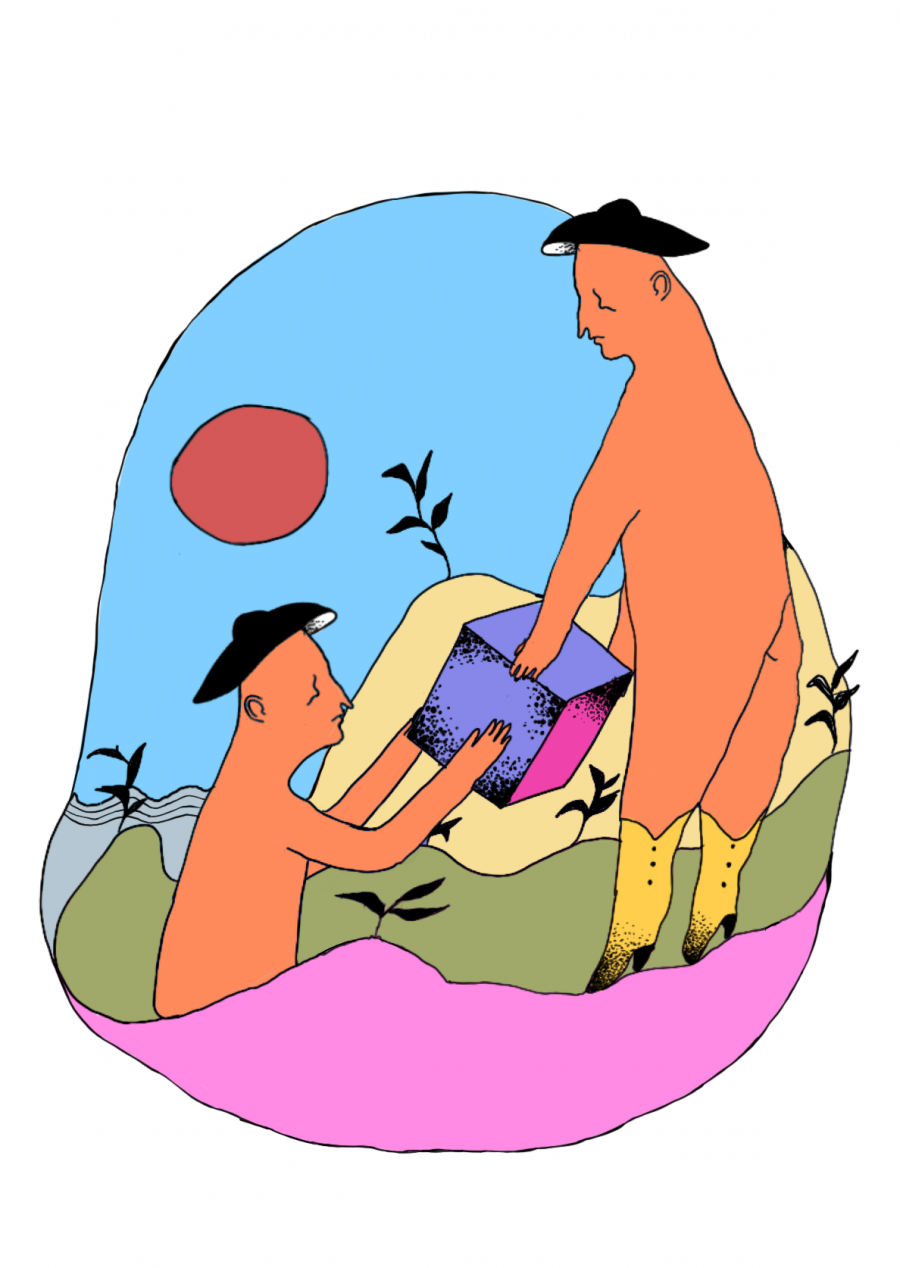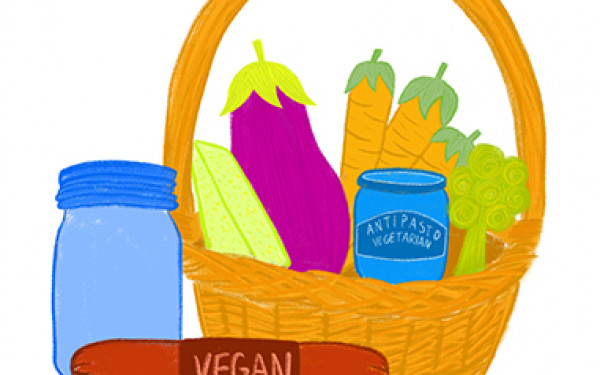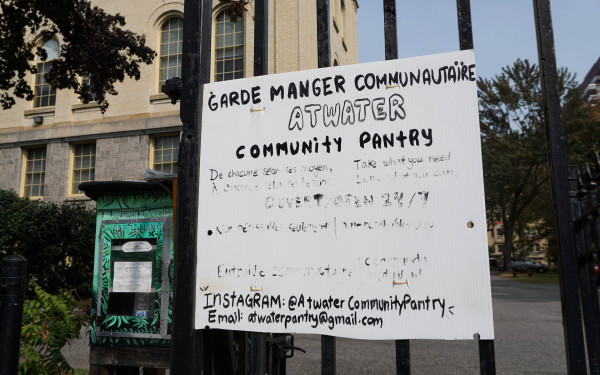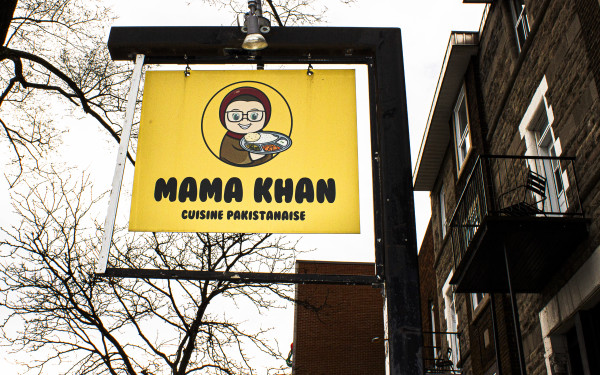Mutual aid emerges as saving grace in the face of the pandemic
COVID-19 has forced Montreal and Concordia communities to rethink the way they care for those in need
COVID-19 brought to light the imperfections of the dominant charity model of aid. Many existing public services quickly became overwhelmed and were not always able to properly serve the growing population relying on their services.
In this moment of extreme stress, many individuals and organizations already working in their communities to provide equitable access to resources saw an increased need and snapped into action.
The action taken by these community activists emerged in the form of organized mutual aid efforts. In Montreal, the most visible of these efforts is a private Facebook group with a community of over seventeen thousand members.
MTL COVID-19 Mutual Aid Mobilisation d’entraide was started by mutual aid advocate and community organizer Griffin Payne and is moderated and administered by over a dozen other individuals.
The many calls for mutual aid brought on by the extreme circumstances of the pandemic have created some confusion over what is and is not a part of this practice. To Allister Trudel, one of the admins of Montreal’s group, mutual aid means “a community coming together to address the needs of the community.” While the physical circumstances of the pandemic necessitate physical isolation of individuals, these efforts emphasize community interconnectivity and cooperation to ensure access to resources.
Mutual aid and charity are different practices and in many ways, mutual aid opposes the practices of the charity model. However, Trudel—along with many other advocates of mutual aid—think food banks and mutual aid fit together given the current circumstances.
Trudel’s involvement is demonstrative of the long term engagement required for the success of mutual aid networks. After the page was created, the founders went to a community on Facebook she was already an admin of for inspiration.
The page Montreal Queer Spoon Share focuses on providing mutual aid for queer, disabled and chronically ill individuals. The pandemic expanded not only the need for aid, but the awareness of those able to provide aid.
“Since there were so many more people in the big mutual aid group, I would often find myself referring people who had struggled to find help within my group to this bigger group,” said Trudel.
She emphasized that mutual aid was already around prior to the pandemic and was essential to the lives of many disabled or chronically ill people, but suddenly a lot more people began to count on it. She hopes the systemic inequities that became clear in March will lead to more governmental support for such projects. The existence of such groups demonstrates an enthusiasm of such projects within the community, however, in Trudel’s eyes “it can be organized but we don’t have the funds or the political will to make it happen.”
Requests for food are common in this group—with increased job loss and an even greater lack of accessibility for immunocompromised people, access to basic resources is essential. While there’s initiative being taken by individuals to provide food access outside of the charity model, many referrals are still being made for food banks and food drops.
“The fact that we have mutual help addresses these out of the ordinary situations,” she said. “We need the food banks _and_ we need people to just randomly donate food to people who are in need.”
“The fact that we have mutual help addresses these out of the ordinary situations.” —Allister Trudel
However, food banks and other charity programs have the advantage of infrastructure and funding which Trudel notes create greater efficiency and prevents burnout by individual organizers both inside and outside traditional charity organizations.
In Trudel’s group, the admins and moderators have made intentional efforts to properly take care of themselves because “you need to meet your own needs to help others,” she said.
In order for mutual aid to sustainably continue in the long term, there is a need for funding and political will to create and support these systems and educational initiatives to create self-determining communities.
The transformation from individual initiative to organized projects in the mutual aid framework can be seen even from within Concordia.
Emma McLaughlin is the Concordia Farmer’s Market coordinator. At the start of the pandemic, prior to the distribution of the Canada Emergency Response Benefit, she saw the sudden need for greater food access in the broader Concordia community and created the Emergency Food Basket program. She shared this initiative in the MTL COVID-19 Mutual Aid Mobilisation d’entraide group as a way to reach those who could benefit.
The Concordia Farmer’s Market later partnered with Innovation Jeune to expand its reach. “When Innovation Jeune came on board, filling out the form went on their website [...] and with their extra funding that they are able to receive and more energy we were able to do about 300 to 350 baskets a week,” said McLaughlin.
By partnering with an established organization, this initiative—which started on a very small scale—was able to effectively ramp up and function in a way that allows long-term engagement with the community. While the offering of free food baskets is a temporary reallocation of resources and does more closely resemble traditional charity by focusing on sourcing from local, organic, and sustainable food producers, mutual aid practices are embedded in this program.
In discussing the next steps of her program, McLaughlin underscores educational initiatives. “We want to encourage more educational programs and things that would encourage more food sovereignty and food autonomy,” she said.
She proposes “food autonomy workshops for the people who receive the baskets, trying to encourage the community to lead workshops as well and continuing at the same time to give out these food baskets.”
To create a strong community able to withstand moments of adversity mutual aid cannot stop with the end of the pandemic. Trudel hopes to move beyond the one-to-one interactions that we see today and imagines mutual aid on a much grander scale. “I wish there was a store, where food was given and it was always full and people who absolutely need food now could just go to this store,” she said. “It doesn’t need to be individuals running it at their risk, it can be organized.”
A previous version of this article refered to Allister Trudel as Allison Trudel. The Link regrets this error.







